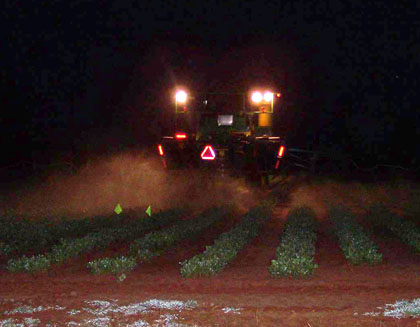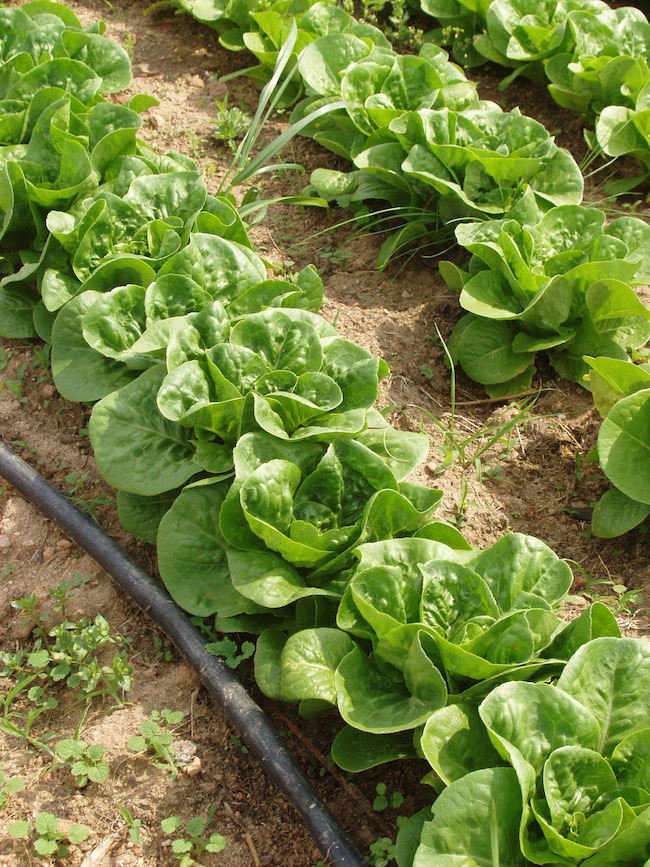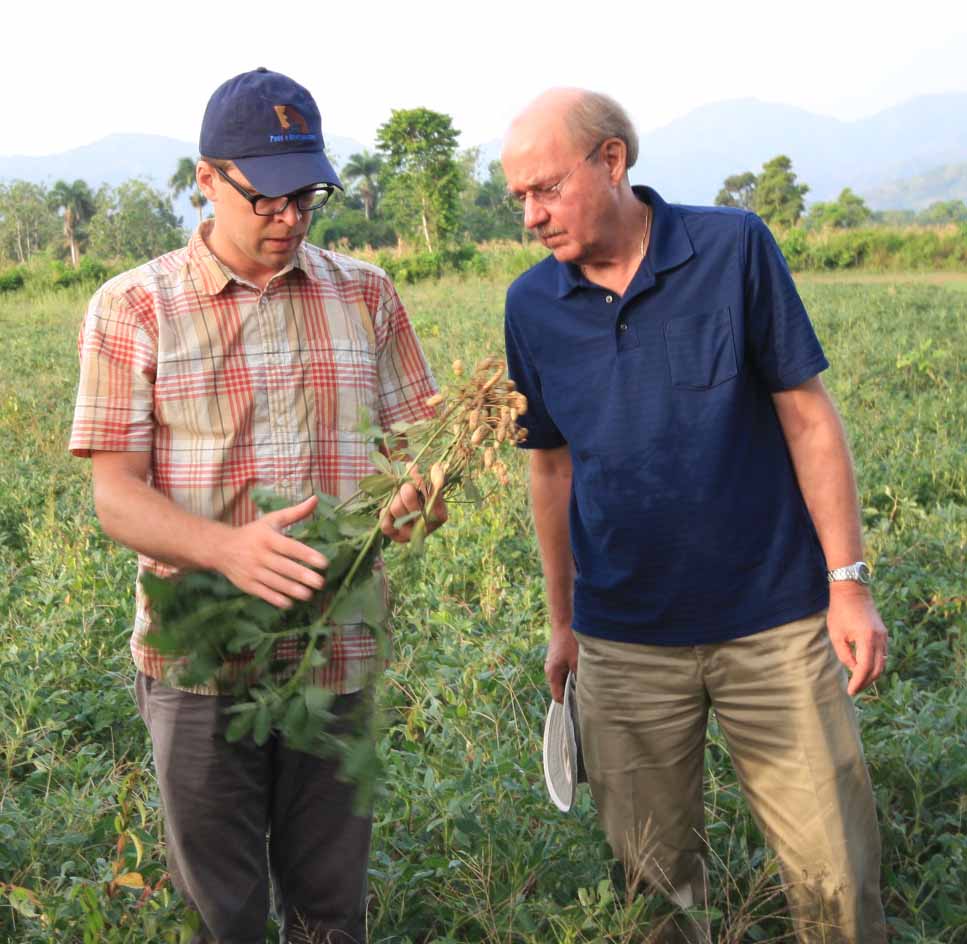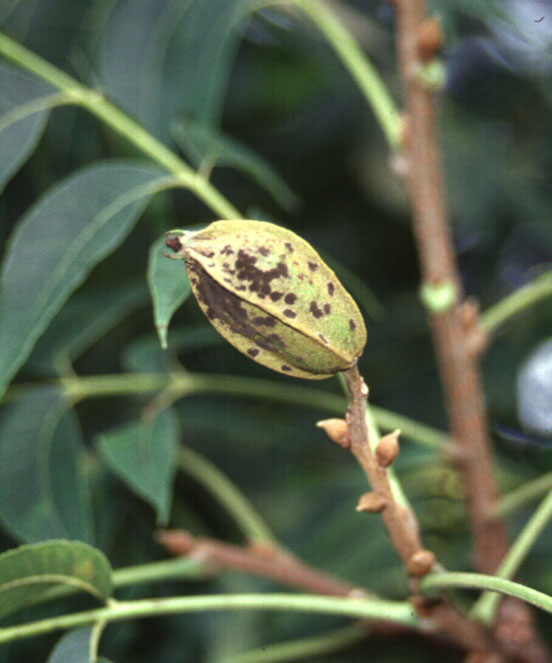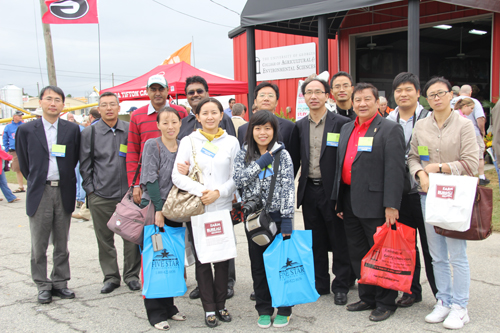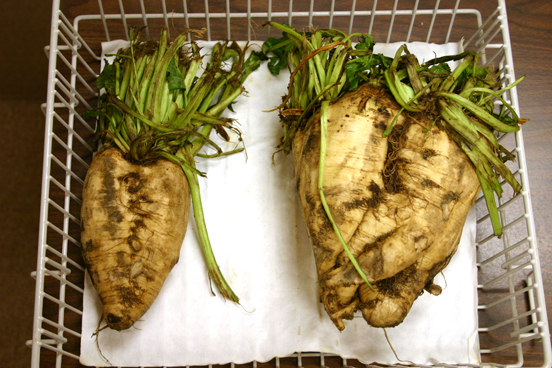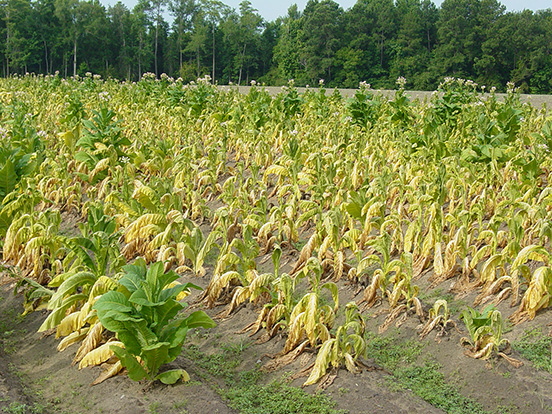 CAES News
CAES News
Black Shank Disease
April showers washed away chemical treatments and provided moisture for infections in 2014, causing Georgia farmers to lose between 4 and 5 percent of the state’s 12,000-plus tobacco acres to black shank disease.

.jpg)
